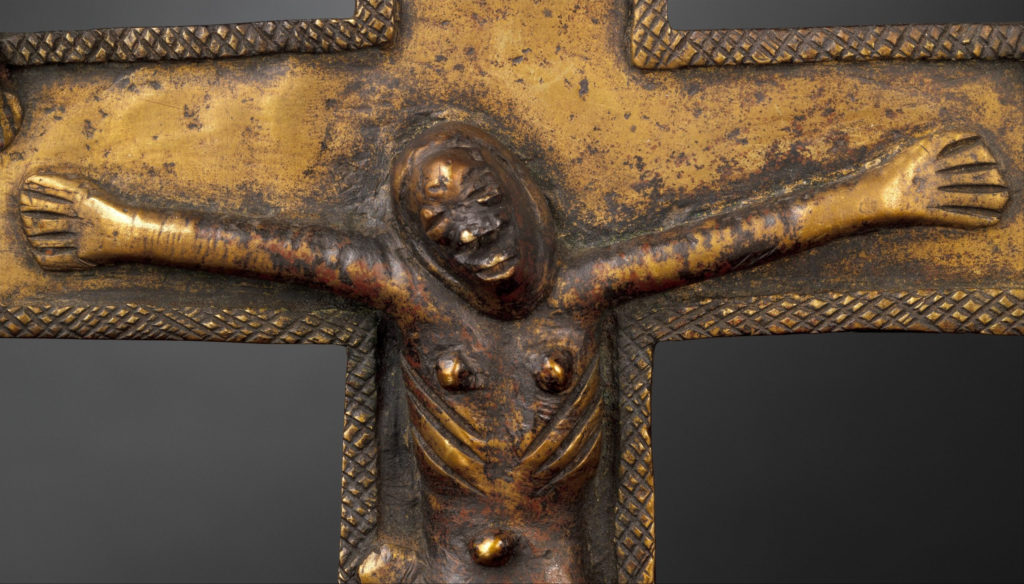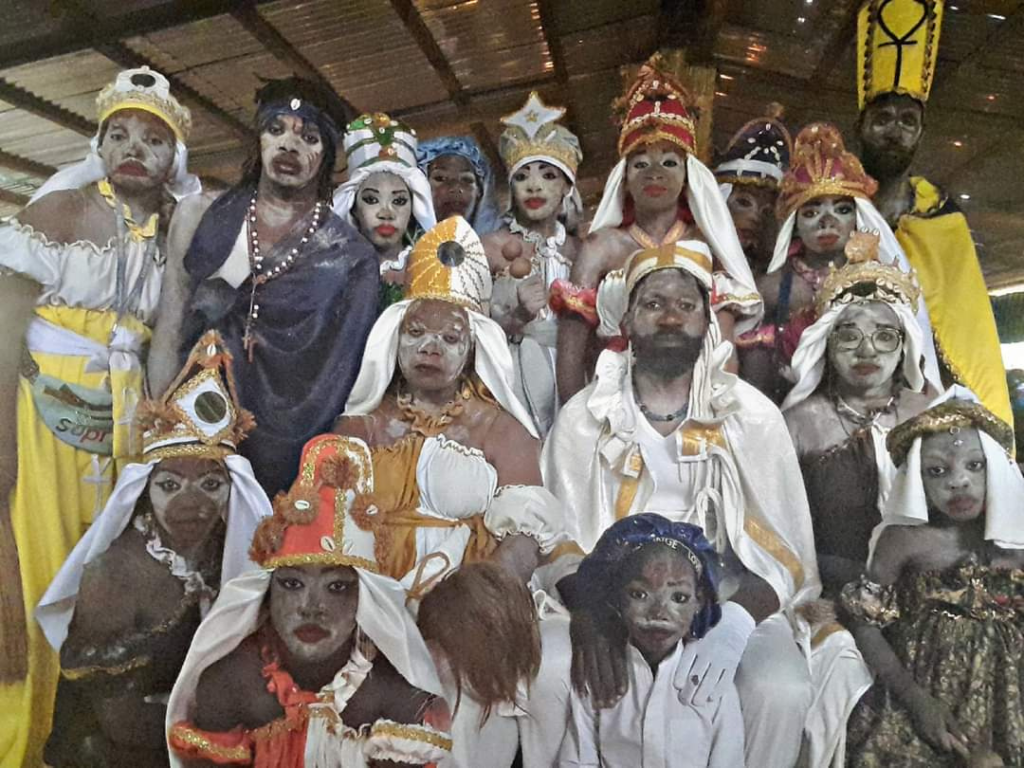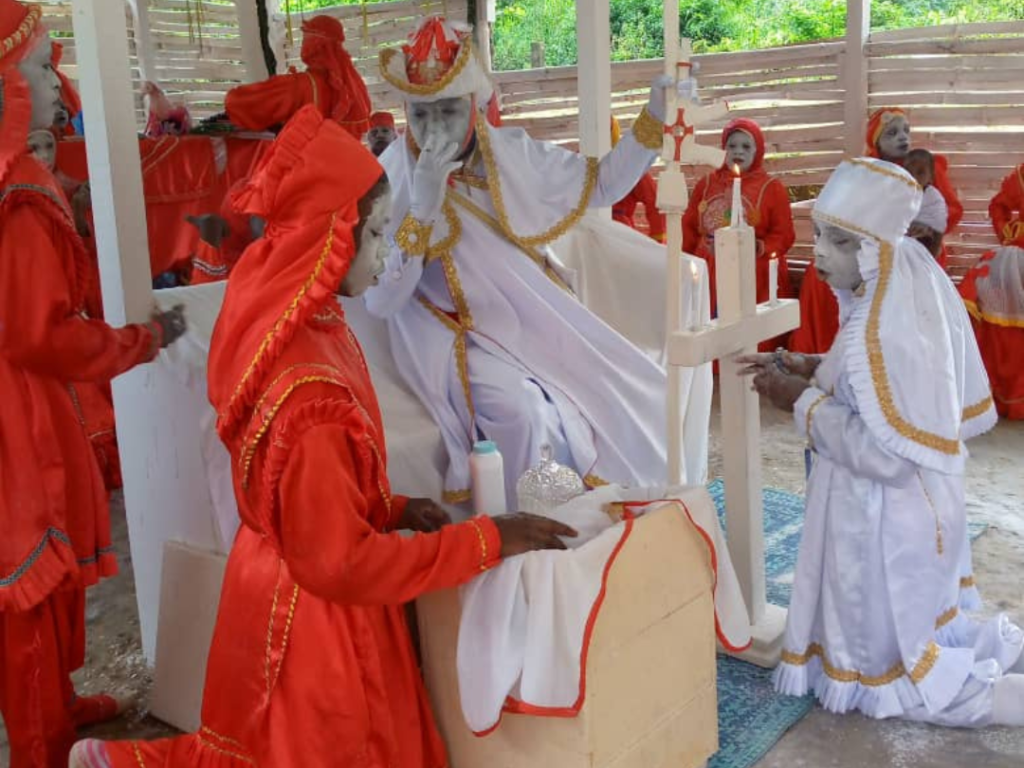A question we frequently encounter is how our Bwiti indigenous culture has come to incorporate elements of Christianity. It might seem paradoxical to some, especially given Christianity’s history of labeling our practices as pagan and evil, that we find resonance with aspects of the Christian faith. This curiosity deepens when considering the historical efforts of missionaries to eradicate our traditions and forcefully convert our ancestors in the quest for salvation. In this blog post, we delve into the Bwiti tradition, focusing on our Fang branch, exploring the syncretism of Bwiti and Christianity, and discussing why we incorporate elements of Christianity into our traditions.
The Impact of Christian Missionaries on the Bwiti Tradition

The late 19th and early 20th centuries marked a significant epoch in Gabon with the arrival of Christian missionaries from Europe. Their mission to propagate Christianity had profound repercussions on our indigenous spiritual practices and traditions. Viewing Bwiti and other indigenous religions through a lens of European Christian superiority, they deemed our ancestral rites as pagan, heathen, or “evil,” necessitating conversion for salvation. This era heralded a direct onslaught on the Bwiti faith, as missionaries endeavored to supplant it with Christianity. Despite the portrayal of our traditional practices as ‘evil’ and the coercive circumstances introduced by missionaries, a resilient few among our ancestors persevered in maintaining the Bwiti tradition, ensuring its survival and continuity.
Renunciation and Resistance

In the wake of missionary endeavors, many Gabonese were either coerced or convinced to forsake their ancestral beliefs. This was achieved through various means, including education that portrayed the Christian worldview as the sole “civilized” option, alongside outright denunciation of indigenous practices. During this time the missionaries destroyed many Bwiti sacred sites, temples and symbols.
Nonetheless, this process was neither uniform nor wholly successful. Some communities resisted, adapting their practices to incorporate Christian elements into Bwiti rituals as an act of spiritual and cultural preservation, marking the beginning of a unique synthesis between Bwiti and Christianity.
Syncretism as Adaptation

The encounter with Christian missionaries led to the syncretism between Bwiti and Christianity observed in contemporary Bwiti practices. The Bwiti tradition, particularly in its Fang variant, absorbed Christian elements that resonated with its own spiritual framework. This included the adoption of Christian symbols, prayers, and even the integration of Christian figures into the pantheon of spiritual beings within Bwiti cosmology. Such syncretism was not merely a passive process but a deliberate act of adaptation and resistance, allowing Bwiti practitioners to retain their spiritual identity while navigating the pressures of colonial and missionary influence.
The incorporation of Christianity and Christian symbols into Bwiti rites and traditions is a fascinating example of religious syncretism, where elements from different faith traditions are blended. This syncretism reflects the adaptive and inclusive nature of Bwiti spirituality, especially in how it has integrated aspects of Christianity, a religion introduced to Gabon and surrounding areas largely through colonial missionary efforts. Here are some ways in which Christianity and its symbols have been incorporated into Bwiti practices:
Christian Elements in Our Bwiti Rites

The Cross: The Christian cross has been adopted into Bwiti rituals as a symbol of spiritual intersection, protection, and guidance. It is often present in Bwiti sacred spaces, altars, and during rituals, signifying a bridge between the earthly and spiritual realms, much like its use in Christianity.
Christian Icons and Artifacts: Images of Jesus Christ, the Virgin Mary, and various saints can often be found in Bwiti temples or ritual spaces. These icons are respected as representations of high vibrational beings who can offer guidance and protection to practitioners.
In Bwiti belief, Jesus Christ is revered as a high vibrational ancestor or spiritual guide, allowing us to honor Him not merely as a religious figure from Christianity but as a potent spiritual entity exemplifying unconditional love, sacrifice, and profound divine connection. Our rituals may also invoke Christian angels and saints, regarded as spiritual entities offering support, guidance, and intercession, reflecting a widened spiritual pantheon where beings from diverse religious traditions are acknowledged and respected.
Adaptation of Christian Rites

Holy Communion: Some Bwiti practices, specifically the Fang our branch have adapted the Christian sacrament of Holy Communion, using it as a ritual of spiritual nourishment and unity among practitioners. This adaptation is symbolic, representing the sharing of spiritual wisdom and the strengthening of community bonds.
Prayer and Scripture: Christian prayers and passages from the Bible are sometimes incorporated into Bwiti ceremonies, chosen for their universal messages of love, forgiveness, and divine connection. These elements are seamlessly woven into the broader tapestry of Bwiti ritual practices, enriching the spiritual experience.
Significance of Syncretism

The syncretism of Bwiti and Christianity is significant for several reasons:
Cultural Preservation and Adaptation: This syncretism is a testament to the resilience of Bwiti practitioners in preserving their spiritual heritage while adapting to external influences. It represents a form of cultural and spiritual resistance that has allowed Bwiti to remain vibrant and relevant.
Spiritual Inclusivity: By embracing elements from Christianity, Bwiti demonstrates a profound spiritual inclusivity and openness. This approach acknowledges the universality of certain spiritual truths and values, regardless of their religious origin.
Interfaith Dialogue: The integration of Christian elements into Bwiti can facilitate interfaith understanding and dialogue. It highlights commonalities between different spiritual traditions, fostering a sense of mutual respect and shared spiritual quest.
Our Traditional and spiritual practices vividly demonstrate the resilience, adaptability, and openness of our community. By intertwining teachings from a multitude of traditions, we have crafted a holistic and profound spiritual experience that not only honors our ancestral wisdom but also embraces the transformative teachings of Christ. This synthesis between Bwiti and Christianity fosters a harmonious confluence of diverse spiritual paths, propelling us forward in our collective quest for universal truth and enlightenment.
Click here to find out more about participating in a Bwiti ceremony for personal and spiritual transformations
References:
